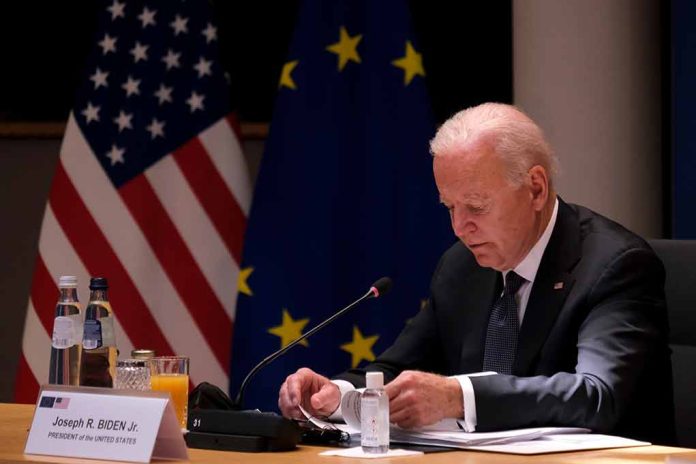
The Biden administration faces criticism for its delayed genocide declaration in Sudan, as violence escalates and millions suffer.
At a Glance
- U.S. accuses Sudan’s Rapid Support Forces (RSF) of committing genocide
- Secretary of State Blinken highlights ethnically targeted violence in Darfur
- Biden administration criticized for waiting until end of term to declare genocide
- Sanctions imposed on RSF leader and companies involved in weapons trade
- Conflict has led to severe humanitarian crisis with widespread famine
U.S. Declares Genocide in Sudan
The United States has officially accused the Sudanese paramilitary group, Rapid Support Forces (RSF), of committing genocide in Sudan’s ongoing civil war. Secretary of State Antony J. Blinken made the announcement, highlighting the ethnically targeted violence perpetrated by the RSF in the Darfur region. This declaration echoes a similar U.S. finding in 2004 against the Janjaweed militias in Darfur, underscoring the recurring nature of such atrocities in the region.
The genocide determination comes with serious implications, including new sanctions imposed by the U.S. Treasury Department on RSF leader Gen. Mohamed Hamdan and seven companies in the United Arab Emirates for their role in trading weapons and gold on his behalf. These actions aim to hold accountable those responsible for grave human rights violations and to curtail the financial and logistical support fueling the conflict.
Biden administration sounds alarm about Sudan genocidehttps://t.co/N2BuOL31MK pic.twitter.com/gULSImcKgq
— Voice of America (@VOANews) January 9, 2025
Allegations of Systematic Atrocities
The RSF and allied militias stand accused of committing heinous acts against civilians. Reports indicate systematic murders of men and boys, including infants, based on ethnic grounds. Women and girls from certain ethnic groups have been targeted for assault and other forms of brutal violence. Additionally, fleeing civilians have been attacked, with innocent people murdered while trying to escape the conflict.
These actions have not only resulted in immediate loss of life but have also contributed to a severe humanitarian crisis. Widespread famine has gripped the region, leaving millions in desperate need of assistance. The international community now faces the challenge of addressing both the immediate needs of the affected population and the broader implications of the genocide declaration.
Criticism of Biden Administration’s Timing
The Biden administration has come under fire for the timing of its genocide declaration. Critics, including Senator Jim Risch, argue that the administration waited until the end of President Biden’s term to make this crucial determination. They contend that earlier action, including the imposition of sanctions and more robust diplomatic efforts, could have saved lives and maintained U.S. influence in the region.
“The Biden administration said it has determined that Sudan’s paramilitary group, the Rapid Support Forces, is committing genocide in the country’s ongoing civil war.” – NPR
The U.S. Special Envoy for Sudan has defended the administration’s approach, emphasizing the complexity of making atrocity determinations. However, this explanation has done little to quell the criticism from those who believe that a more timely response could have mitigated the scale of the humanitarian disaster unfolding in Sudan.
The bipartisan resolution was introduced in the House again a day before the Joe Biden administration declared a genocide in Sudan. https://t.co/csI9zkZEq6
— HuffPost (@HuffPost) January 8, 2025
International Response and Future Implications
The genocide declaration and subsequent sanctions mark a significant escalation in the international response to the Sudan crisis. The U.S. Treasury Department has expressed its commitment to holding accountable those violating human rights in Sudan. However, the effectiveness of these measures in halting the violence and addressing the humanitarian crisis remains to be seen.
As the situation continues to evolve, the international community faces the challenge of translating this genocide determination into meaningful action. The crisis in Sudan serves as a stark reminder of the ongoing struggle to prevent and respond to mass atrocities in an increasingly complex global landscape.
Sources:
- U.S. Declares Genocide in Sudan. Critics Say Biden Acted Too Late. – WSJ
- Sudanese Paramilitary Group Committed Genocide, U.S. Says
- U.S. declares genocide in Sudan : NPR
- Biden Admin slammed for ‘waiting’ to declare genocide in Sudan | Fox News














